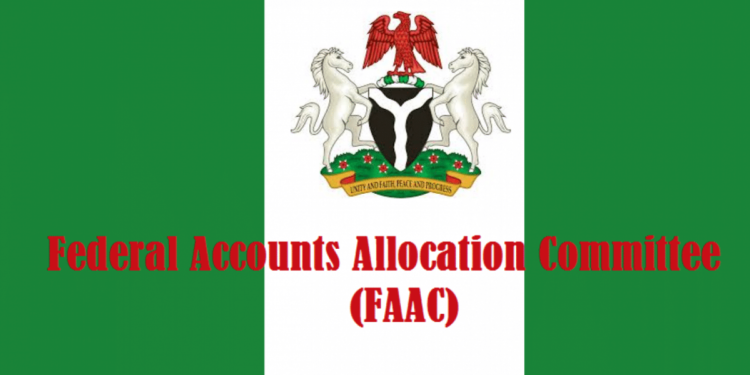As Nigeria navigates the intricate web of economic challenges, the Federation Account Allocation Committee (FAAC) has played a pivotal role in ensuring the equitable distribution of resources. In July, out of a total gross revenue of N1.74 trillion, FAAC disbursed N966.110 billion to the Federal, State, and local governments. While this marked a 10.8 percent decline from the N1.95 trillion recorded in June 2023, the disbursed amount itself represented a slight increase compared to the N907.054 billion disbursed in the previous month.
The allocation breakdown sheds light on the financial flow within the nation. The disbursed sum comprised distributable statutory revenue of N397.419 billion, distributable Value Added Tax (VAT) revenue of N271.947 billion, Electronic Money Transfer Levy (EMTL) revenue of N12.840 billion, and Exchange Difference revenue of N283.904 billion. Among the beneficiaries, the Federal Government received N374.485 billion, State Governments received N310.670 billion, and Local Government Councils received N229.409 billion. Additionally, N51.545 billion was shared among relevant states as 13 percent derivation revenue.
Within this financial landscape, the balance in the Excess Crude Account (ECA) held at $473,754.57. While these numbers provide insight, they also reflect the complexity of Nigeria’s economic scenario.
One significant aspect of this allocation is the deductions applied. The deductions for cost of collection totaled N62.419 billion in July, with total deductions for savings, transfers, refunds, and tax credit cancellation reaching N717.962 billion. These deductions underscore the importance of managing financial resources effectively.
The allocation figures come amidst changes in various economic parameters. The gross statutory revenue for July was N1.150 trillion, down from N1.152 trillion received in June 2023. However, the distributable statutory revenue reflected a different distribution pattern. From the N397.419 billion distributable statutory revenue, the Federal Government received N190.489 billion, State Governments received N96.619 billion, and Local Government Councils received N74.489 billion, with N35.822 billion shared with relevant states as 13 percent derivation revenue.
In the realm of Value Added Tax (VAT) revenue, the figures exhibited growth. A total of N298.789 billion was available in July, representing an increase from the N293.411 billion in June 2023. The distribution of this revenue saw the Federal Government receiving N40.792 billion, State Governments receiving N135.974 billion, and Local Government Councils receiving N95.181 billion.
The Electronic Money Transfer Levy (EMTL) of N12.840 billion, while smaller in scale, also has its role. The allocation included N1.926 billion for the Federal Government, N6.420 billion for State Governments, and N4.494 billion for Local Government Councils.
With the intricacies of Nigeria’s economic landscape, these figures unveil multiple dimensions. They reflect both the challenges and opportunities the country faces. As policy decisions are made, these financial allocations serve as critical components in the broader goal of fostering economic growth, stability, and development. Amidst evolving dynamics, the FAAC’s role remains pivotal in driving Nigeria’s economic engine forward.











